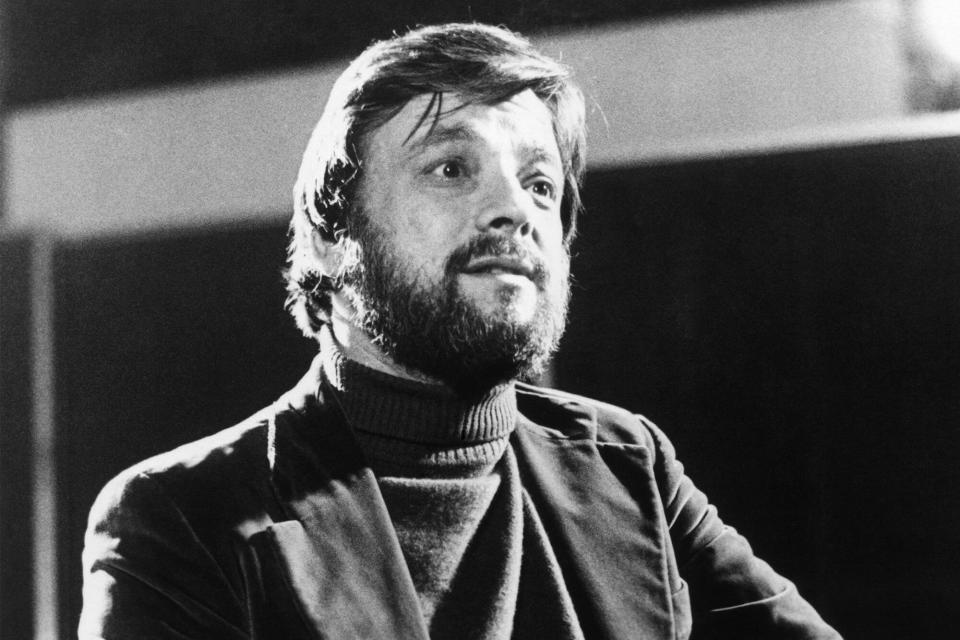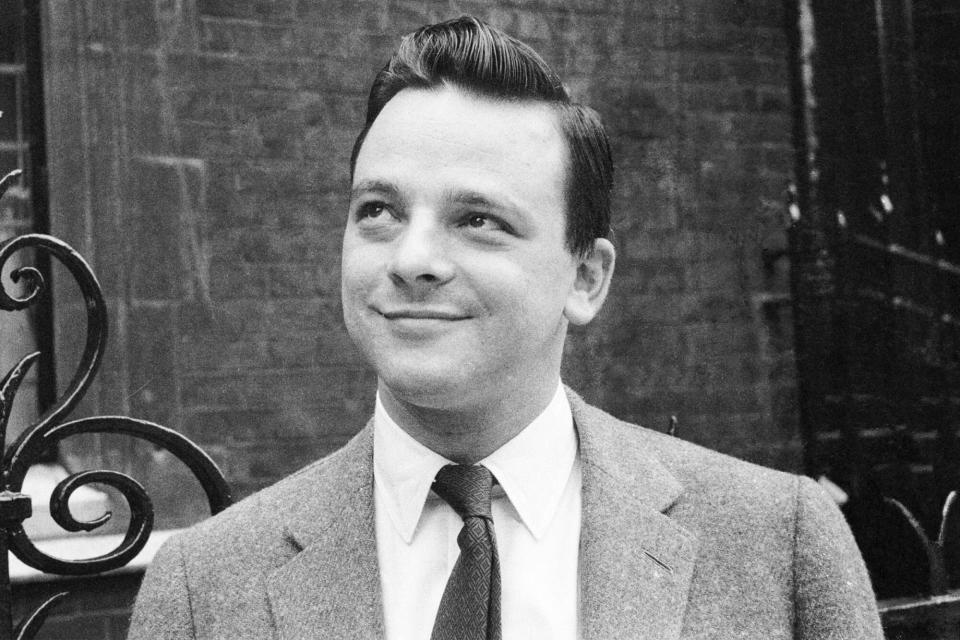Stephen Sondheim, legendary composer and lyricist, dies at 91
- Oops!Something went wrong.Please try again later.
It's unimaginable for any theater fan to not owe at least some part of their show love to Stephen Sondheim. The legendary composer and lyricist, considered by peers and theater professionals alike as the most influential musical creator bar none, died Friday at 91, leaving behind a legacy as varied as the productions he penned during six decades in the business.
According to The New York Times, Sondheim died early Friday at his home in Roxbury, Conn.
In addition to just about every theater award imaginable, Sondheim was the recipient of eight Tonys, eight Grammys, and one Oscar (for the Madonna ballad "Sooner or Later," from the film Dick Tracy), with a palette as rich as his own Georges Seurat in one of his most beloved musicals, Sunday in the Park with George (for which he won his only Pulitzer). Taking his cue from mentor and friend Oscar Hammerstein II, the era of the collectible cast album reached its zenith in the 1950s and '60s with Sondheim's early work, with galvanizing contributions to masterworks West Side Story, Gypsy, and A Funny Thing Happened on the Way to the Forum achieving maximum overdrive as popular music in households all over the country in the 1960s. (Just try to find a person of the boomer generation who can't sing at least a single song from one of these shows or their also-popular film versions.)

Everett Collection Stephen Sondheim
Nearly every theatrical endeavor touched thereafter was a hit, cult or otherwise, and even the misfires ended up becoming beloved by some faction of devotees, often many years after their premieres. Subjects may have varied from countryside actors' frolic (A Little Night Music) to a thirtysomething commitmentphobe in New York (Company) to the crumbling psyches surrounding a theatrical reunion (Follies), but the through-line in all Sondheim's work was regret and hard life choices, which he honed with frequent collaborators Harold Prince and James Lapine most especially. This is even true in some of his most famous conceptions, like the meat pie murderers of Sweeney Todd who hack away body parts yet sing of lives filled with domestic bliss by the sea or family protection, as well as the playful yet poignant revisionism of fairy tales in Into the Woods, which featured childhood characters we all knew and loved mixed with a tinge of very real loss and heartache. (It's no major surprise that these two works ended up as successful films for directors Tim Burton and Rob Marshall, respectively, and allowed their own sensibilities to intertwine with Sondheim's.)
Ask any person their favorite Sondheim musical and you're certain to get a different answer every time. In addition to those already mentioned, you might find someone partial to Merrily We Roll Along's unique reverse chronology, which explores its songwriter characters' foibles with even deeper impact, or one rocked by Assassins and its prescient theme of president-slayer-hopefuls as celebrities, or an individual who can't help but be profoundly moved by the tragic heroine of Passion, who must find a way to accept her lack of beauty and obsessive behavior. (Though chances are you'd be loathe to find one who champions his one full-on major flop, a non-musical play at that, in the form of 1996's Getting Away With Murder, which closed after 17 performances.)
In addition to being the 20th century's leading musical genius, Sondheim also composed cryptic crosswords for New York magazine, wrote for the cinema as a screenwriter (The Last of Sheila, with Psycho star Anthony Perkins) and composer (pal Warren Beatty, for instance, used him for 1981's Reds as well for 1990's Dick Tracy, among other filmmakers), and has countless books, TV specials and commemorative concerts to celebrate his legacy featuring nearly every major Broadway star one could think of.
Sondheim wrote his own artistic memoir, a cross between autobiography and annotated lyrics, in 2010's Finishing the Hat, which he followed in 2011 with Look, I Made a Hat (both titled after lyrics from Sunday in the Park With George).
In his later years, Sondheim became something of an elder statesmen of the musical theater, mentoring composers like Jonathan Larson, Lin-Manuel Miranda, and Jason Robert Brown. His contributions to musical theater's evolution were recognized in a unique way in 2010 when Broadway formally renamed Henry Miller's Theatre on West 43rd St. in New York City the Stephen Sondheim Theatre.

Michael Hardy/Express/Getty Images Stephen Sondheim
At the time of his death, he had a new musical in development in collaboration with playwright David Ives. He revealed the project, Square One, during an appearance of The Late Show With Stephen Colbert.
Though Sondheim was long a favorite of musical theater devotees, his work permeated pop culture more than ever before in recent years. References to (or performances of) his songs have appeared in projects as varied as The Morning Show, Joker, The Politician, Knives Out, and Marriage Story. Bradley Whitford portrayed Sondheim in 2021's Tick, Tick… Boom!, with Sondheim recording his own dialogue for a final climactic voicemail in the film.
His work will continue to touch generations. A gender-bent revival of Company is currently running on Broadway, and a production of Assassins is underway Off Broadway. A new film interpretation of West Side Story will hit theaters in just a few weeks, Tick, Tick… Boom!, is now playing, and a film adaptation of Merrily We Roll Along that will take several more years to complete is in the works from director Richard Linklater.
But even as Sondheim's work has loomed so large over so many and the wordsmithing so lacerating (and rarely attempted again, even by his imitators), it's the simplest of gestures and expressions that have left so many wanting to revisit Sondheim's creations again and again. To quote his own troubled titular painter in Sunday in the Park With George, he simply "made a hat… where there never was a hat."
Related content:

